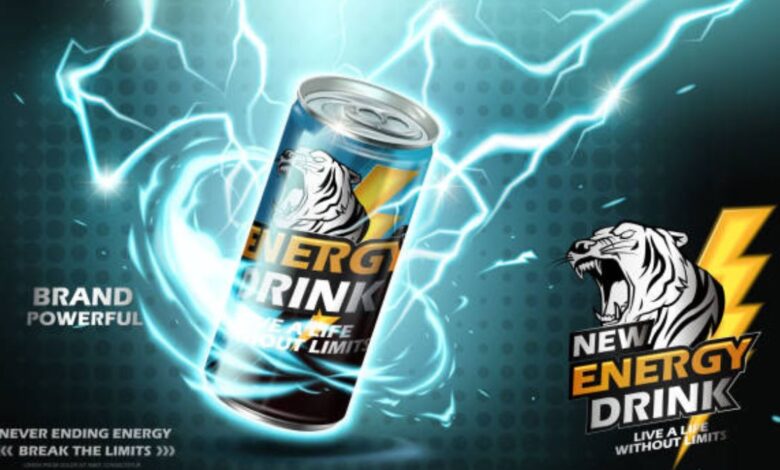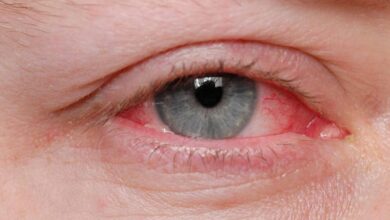Why Do Energy Drinks Make Me Tired? The Shocking Science Explained

Energy drinks have surged in popularity over the last decade, becoming a staple for many looking to power through long days or late nights. With eye-catching packaging and promises of instant energy, it’s no wonder they fly off the shelves. But as you crack open that can and take a sip, have you ever wondered Why Do Energy Drinks Make Me Tired? It’s an unsettling paradox: these vibrant beverages designed to energize us sometimes leave us feeling drained instead.
Let’s dive into this puzzling phenomenon. What is it about energy drinks that could leave you yawning when all you wanted was a boost? Understanding the science behind this will not only shed light on your fatigue but may also change how you view these popular pick-me-ups forever.
What makes energy drinks different from other beverages?
Why Do Energy Drinks Make Me Tired? Energy drinks stand apart from regular beverages due to their unique formulation. They are specifically designed to provide a rapid boost in energy and alertness. This sets them apart from sodas or juices, which primarily serve as refreshment.
One key difference lies in the high concentration of stimulants, particularly caffeine. While many beverages have some caffeine content, energy drinks often contain significantly higher levels.
Additionally, these drinks frequently include other performance-enhancing ingredients like taurine and ginseng. These compounds promise increased stamina and mental clarity but can also lead to unexpected side effects.
Moreover, energy drinks typically come with a distinct marketing appeal aimed at young adults seeking an adrenaline rush or enhanced focus during workouts or late-night study sessions. This targeted branding adds another layer that differentiates them from more traditional drink options found on grocery store shelves.
The role of caffeine in energy drinks
Caffeine is the star ingredient in most energy drinks. It’s known for its stimulating effects, providing that quick jolt of alertness many crave. But how does it really work?
Once ingested, caffeine blocks adenosine receptors in the brain. Adenosine is a neurotransmitter responsible for promoting sleep and relaxation. By inhibiting this process, caffeine can temporarily boost your mood and focus.
However, tolerance to caffeine builds over time. What once energized you might start feeling less effective after repeated use. This leads some users to consume more—creating a cycle of dependency rather than sustained energy.
Moreover, while caffeine can enhance performance short-term, it doesn’t always equate to long-lasting vitality or productivity. When the initial stimulation wears off, fatigue often sets in harder than before as your body craves rest from overstimulation.
Other ingredients in energy drinks that can cause fatigue
Why Do Energy Drinks Make Me Tired? Energy drinks often boast a cocktail of ingredients designed to boost performance and alertness. However, some of these components can actually lead to fatigue.
Sugar is a prime suspect. Many energy drinks pack high amounts of sugar for quick energy. This spike in blood sugar is often followed by a crash, leaving you feeling depleted and tired.
Additionally, taurine—a common amino acid found in many formulations—can have varying effects on individuals. While it may enhance cognitive function temporarily, too much can lead to feelings of lethargy once its stimulating effect wears off.
B vitamins are present as well, touted for their role in energy metabolism. But excessive consumption without adequate hydration can disrupt your natural rhythms and contribute to exhaustion rather than invigorate you.
These hidden culprits might be more responsible for that post-energy drink slump than you’d think.
Understanding the crash and burn effect of energy drinks
The crash and burn effect of energy drinks is all too real. Initially, you feel a surge of energy. That jolt can make you feel unstoppable. But what goes up must come down.
After the initial boost fades, many experience an unexpected fatigue. This dip can hit hard and fast, often leaving individuals feeling more drained than before. It’s like riding a roller coaster—exciting at first but ultimately leading to a steep drop.
This phenomenon occurs due to rapid spikes in blood sugar levels followed by sharp declines. Caffeine overstimulation also plays a role; it temporarily masks tiredness but doesn’t actually energize your body in the long run.
As your body reacts to this synthetic stimulation, it may crave rest even more intensely once those effects wear off. The cycle of reliance becomes vicious as people reach for another drink just to fend off fatigue instead of addressing underlying needs for proper rest or nutrition.
Long term effects of excessive energy drink consumption
Excessive consumption of energy drinks can lead to a host of long-term health issues. One primary concern is heart health. High doses of caffeine and stimulants can increase heart rate and blood pressure, putting strain on the cardiovascular system.
Additionally, many people experience sleep disturbances due to the high caffeine content. Over time, this may result in chronic fatigue and insomnia, creating a vicious cycle where more energy drinks are consumed for temporary relief.
There’s also a risk of developing dependency on these beverages. Relying on them for energy can diminish natural alertness levels. This makes it harder to function without that boost from artificial sources.
Moreover, excessive sugar intake from energy drinks can contribute to weight gain and metabolic disorders. As habits form around quick fixes instead of balanced nutrition, overall well-being might suffer significantly over time.
Alternatives to energy drinks for a sustained boost of energy
If you’re seeking alternatives to energy drinks, there are plenty of natural options that can provide a more sustained boost.
Green tea is a fantastic choice. It contains caffeine but also offers L-theanine, which helps promote calmness without the jitters.
Smoothies packed with fruits like bananas and berries deliver essential vitamins and minerals while providing natural sugars for energy. Add some spinach or kale for an extra nutrient punch.
Another option is hydration. Sometimes fatigue stems from dehydration, so drinking water throughout the day can enhance your overall energy levels.
Nuts and seeds are great snacks rich in healthy fats and protein. They keep your blood sugar stable, preventing those sudden crashes often associated with sugary beverages.
Consider adopting short bursts of exercise into your routine. Even a brisk walk can invigorate both body and mind without relying on artificial stimulants.
Conclusion: moderation is key when it comes to consuming energy drinks
Why Do Energy Drinks Make Me Tired? Energy drinks can be a tempting choice when you’re looking for a quick boost. However, understanding why they might leave you feeling more tired than energized is crucial. Caffeine plays a significant role in this paradox, but it’s not the only ingredient at play. The sugar content and other additives can lead to crashes that exacerbate fatigue.
Being aware of how your body reacts to these beverages is essential. Moderation is key when it comes to energy drink consumption, as excessive intake can lead to dependency and long-term health issues. Exploring healthier alternatives may provide a more sustainable source of energy without the unwanted side effects.
By making informed choices about your energy sources, you set yourself up for better overall well-being. Pay attention to how different beverages affect you personally; this awareness will guide you toward healthier habits while keeping fatigue at bay.



